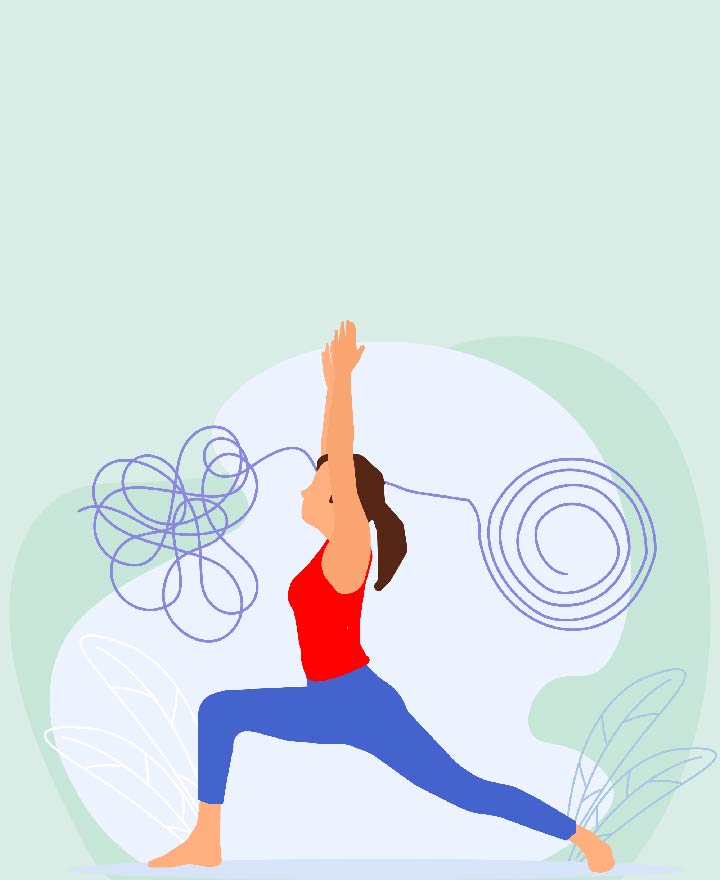
**Yoga for Improved Sleep: A Research-Validated Approach**
If you find yourself frequently tossing and turning, struggling with sleepless nights, you’re not by yourself. Approximately one in three adults in the U.S. fail to achieve adequate sleep, with millions experiencing insomnia or various sleep issues. If you’re feeling exasperated with your sleep patterns, it may be time to explore a straightforward, research-validated approach: yoga.
**The Link Between Yoga and Sleep**
Yoga, a time-honored discipline that fuses physical postures, breath control, and meditation, has been demonstrated to provide numerous health advantages, including enhanced sleep quality. Studies suggest that consistent yoga practice can assist individuals in falling asleep more swiftly, maintaining sleep for longer durations, and experiencing a superior overall quality of rest.
**How Yoga Enhances Sleep**
1. **Reduction of Stress**: A leading factor in sleep issues is stress. Yoga alleviates stress by engaging the parasympathetic nervous system, which soothes both mind and body. Breathing techniques and mindfulness meditation practiced during yoga help to decrease cortisol levels, the stress-related hormone, thus encouraging relaxation and sleep.
2. **Boosting Melatonin Production**: Melatonin is a hormone that governs the sleep-wake cycle. Certain styles of yoga, especially those concentrating on relaxation and meditation, may boost melatonin secretion, enhancing both sleep quality and length.
3. **Muscle Relaxation**: Physical stress and discomfort can hinder the ability to fall asleep. The gentle stretches and movements of yoga can ease tension and muscle pain, fostering improved sleep.
4. **Enhanced Respiration**: Yoga cultivates healthier breathing patterns, which can have a direct effect on sleep. Techniques such as pranayama (breath control) increase lung capacity and efficiency, which may reduce snoring and alleviate symptoms of sleep apnea.
**Recommended Yoga Poses for Sleep**
1. **Legs-Up-the-Wall Pose (Viparita Karani)**: This restorative position calms the nervous system and lowers anxiety, setting the mind up for sleep.
2. **Child’s Pose (Balasana)**: This gentle forward bend relieves back and shoulder tension while fostering a sense of peace.
3. **Reclining Bound Angle Pose (Supta Baddha Konasana)**: Promoting profound relaxation, this pose opens the chest and hips while helping to diminish stress.
4. **Corpse Pose (Savasana)**: Commonly used as the final relaxation in yoga sessions, Savasana allows the body to fully unwind and encourages mental tranquility.
5. **Cat-Cow Pose (Marjaryasana-Bitilasana)**: This fluid sequence eases tension along the spine and assists in relaxation.
**Establishing a Nighttime Yoga Routine**
Creating a yoga routine prior to bedtime can pave the way for peaceful sleep. Begin with a 20- to 30-minute session that emphasizes gentle poses and deep breathing techniques. Give yourself some time to transition from daytime activities to a relaxed state.
**Final Thoughts**
Incorporating yoga into your evening routine can greatly enhance your sleep quality, alleviate stress, and contribute to overall wellness. By dedicating a few moments each night to this age-old practice, you may discover more restful nights and awaken feeling rejuvenated. Remember, consistency is essential, so aim to make yoga a regular part of your nightly routine for optimal benefits. If sleep challenges continue, it may be wise to consult a healthcare provider to eliminate any underlying sleep disorders.